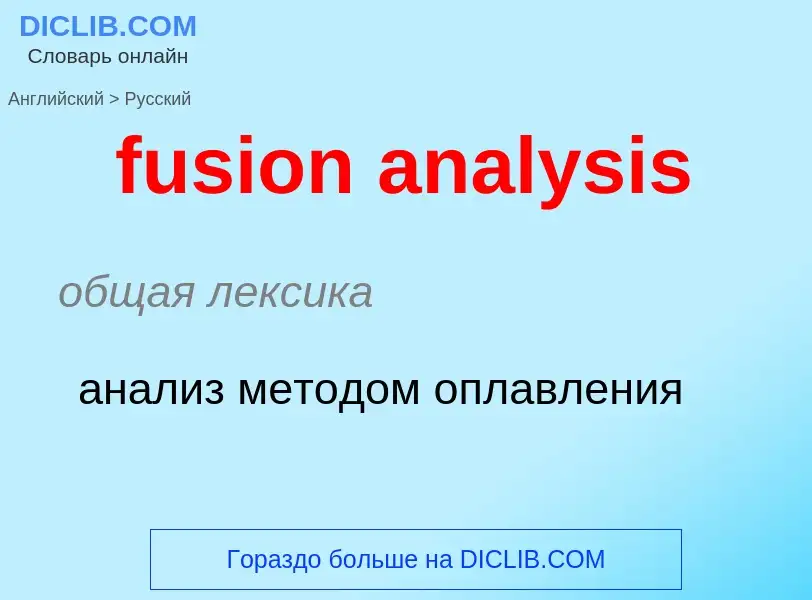Vertaling en analyse van woorden door kunstmatige intelligentie ChatGPT
Op deze pagina kunt u een gedetailleerde analyse krijgen van een woord of zin, geproduceerd met behulp van de beste kunstmatige intelligentietechnologie tot nu toe:
- hoe het woord wordt gebruikt
- gebruiksfrequentie
- het wordt vaker gebruikt in mondelinge of schriftelijke toespraken
- opties voor woordvertaling
- Gebruiksvoorbeelden (meerdere zinnen met vertaling)
- etymologie
fusion analysis - vertaling naar russisch
общая лексика
анализ методом оплавления
['fju:ʒ(ə)n]
общая лексика
слияние
вплавление
конденсация
непровар
плавильный
плавка
провар
размягчение
сплав
сплавление
таяние
термитный
физика
синтез
медицина
анкилоз
артродез
фузия
строительное дело
плавление
нефтегазовая промышленность
оплавление
существительное
общая лексика
плавка
расплавление
сплавление
расплавленная масса
расплав
слияние
коалиция
расплавленная масса, сплав
слияние, объединение
физика
термоядерный сплав
психология
смешанные побуждения или чувства
музыка
фьюжн
джаз-рок (сплав джаза и рока)
Definitie
Wikipedia
In the United States, fusion centers are designed to promote information sharing at the federal level between agencies such as the Federal Bureau of Investigation, the U.S. Department of Homeland Security, the U.S. Department of Justice, and state, local, and tribal law enforcement. As of February 2018, the U.S. Department of Homeland Security recognized 79 fusion centers. Fusion centers may also be affiliated with an emergency operations center that responds in the event of a disaster.
The National Network of Fusion Centers was established after the September 11 attacks to allow collaboration across jurisdictions in order to respond to criminal and terrorist activity. It is a decentralized, distributed, self-organizing network of individual fusion centers and their respective partners within each center's area of responsibility. The process is a method of managing the flow of information and intelligence across levels and sectors of government to integrate information for analysis.[1] Fusion centers rely on the active involvement of state, local, tribal, and federal law enforcement agencies—and sometimes on non–law enforcement agencies—to provide intelligence for their analysis. The intent is that, as the diversity of information sources increases, there will be more accurate and robust analysis that can be disseminated as intelligence.
The effectiveness of this strategy is disputed. Reports by the US House of Representatives Committee on Homeland Security have found fusion centers to be a national asset, though they have at times raised concerns about the ability to evaluate their effectiveness. A 2012 Senate report analyzed 13 months of fusion center reports and found no instances where they helped uncover or prevent a terror attack. The American Civil Liberties Union and the Department of Homeland Security have separately raised concerns about the threats fusion centers pose to privacy rights such as excessive secrecy, little oversight, and mission creep. The actions of individual fusion centers have also been criticized for actions such as labeling universities as terrorism threats, targeting third-party candidates and supporters as potential militia members, and incorrectly blaming a faulty water pump on Russian hackers.

